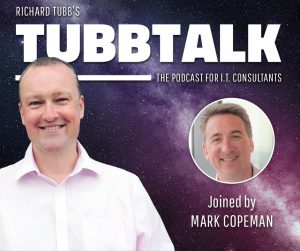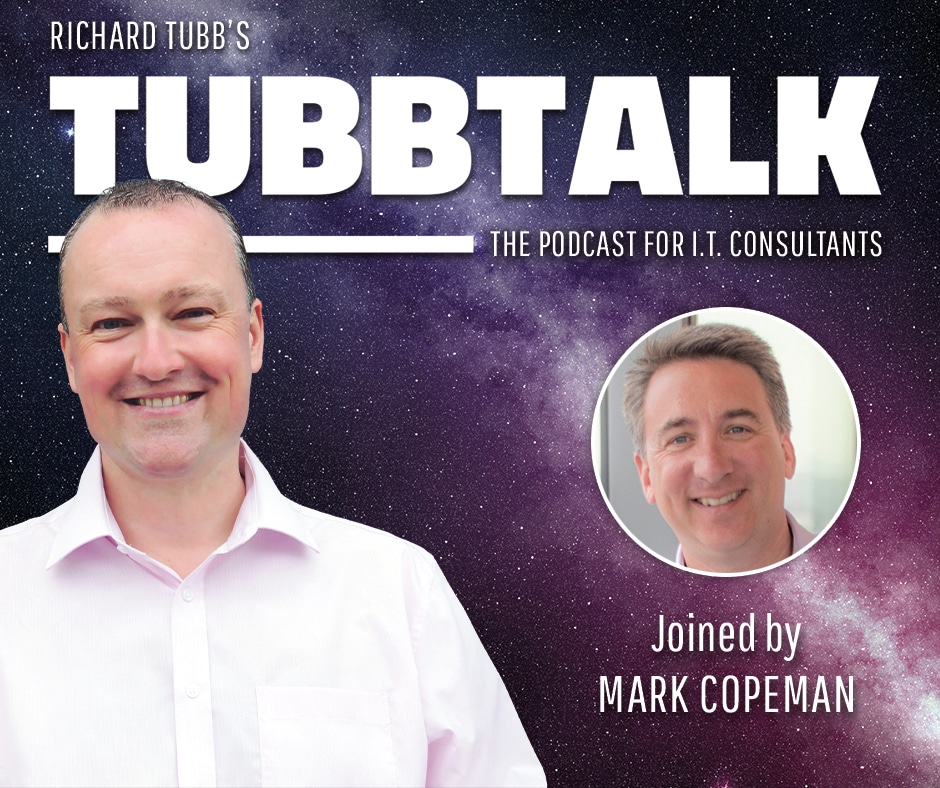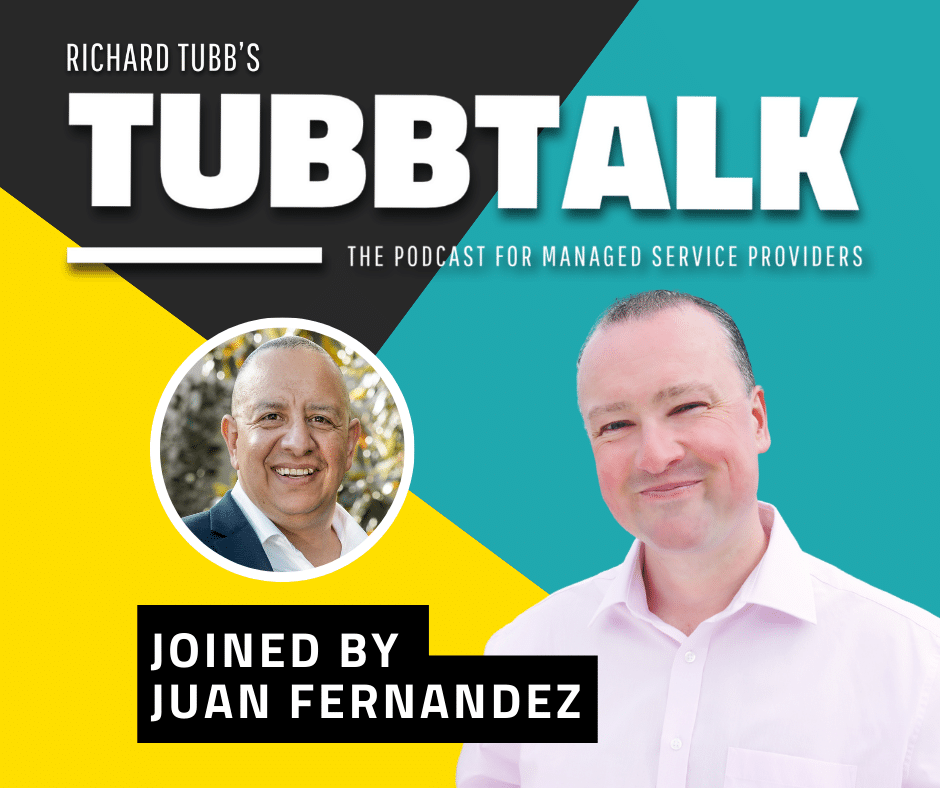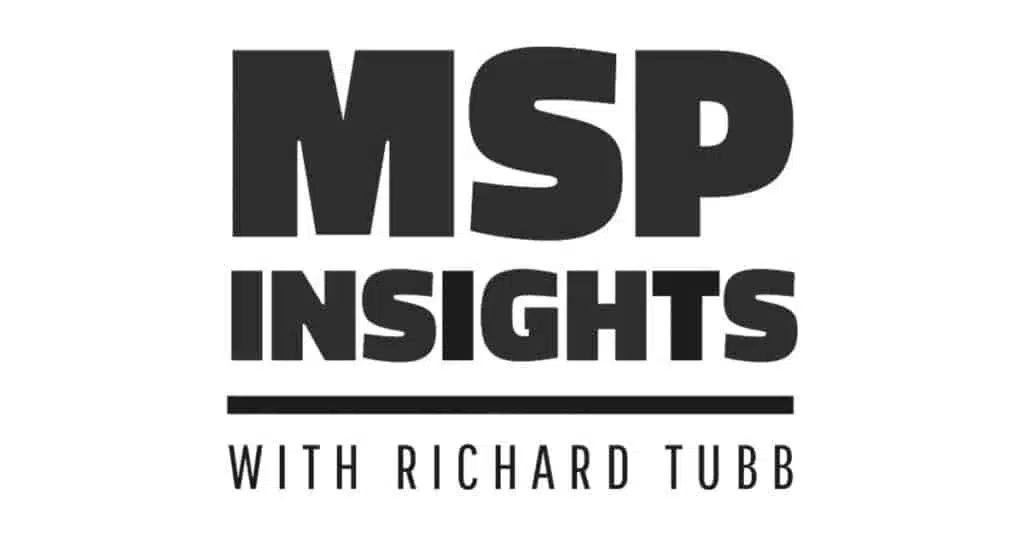 Shouldn’t customer service be intuitive? Perhaps, but it often isn’t. Luckily, today Richard is joined by help desk superhero, author, and all-round good guy Mark Copeman to talk about how to learn great customer service skills, one habit at a time.
Shouldn’t customer service be intuitive? Perhaps, but it often isn’t. Luckily, today Richard is joined by help desk superhero, author, and all-round good guy Mark Copeman to talk about how to learn great customer service skills, one habit at a time.
An interview with Mark Copeman
“I’ve learned that people will forget what you said, people will forget what you did, but people will never forget how you made them feel.” Maya Angelou.
If ever there was a quote that sums up the very essence of customer service, this is surely it, so it’s no surprise to find this in the foreword of Mark’s wonderful book: Helpdesk Habits: Become a helpdesk super hero and make yourself indispensable.
Despite a varied career (Mark says he’s had more jobs than Darth Vader’s had lieutenants!), he’s always found a common thread: whatever industry you’re working in, it’s all about using customer service to make people feel good.
Whether he was wearing the hat of an account manager, an account director, or a business owner, Mark says, a huge part of his work experience was learning to understand how clients feel about you and about what you’re doing.
From agency owner to author
After owning a marketing agency or two, in 2010 Mark was persuaded by a client to build Customer Thermometer, which he describes as ‘pretty much the first one-click feedback survey tool on the market.’ While Customer Thermometer was originally aimed at the marketing agency space, it wasn’t long before MSPs started signing up so Mark decided to pivot the business and integrate with various PSAs and form relationships with them.
After years of talking to — and working with — literally hundreds of MSPs around the world about CSAT and customer experience, Mark decided to leave Customer Thermometer in 2018. Like so many of us, he’d always felt the urge to write a book, so after a lazy summer enjoying the World Cup, he knew that the time had come to finally put pen to paper and start work on Helpdesk Habits.
And thank goodness he did because it’s a subject that desperately needed to be addressed!
The neglected art of customer service
The book absolutely swept the MSP industry and, as clichéd as it may be, Mark is constantly humbled by MSP owners who claim that it’s completely changing how they do business.
So why has Helpdesk Habits had such an impact on so many MSP owners, as well as entrepreneurs in other industries?
Well, the fact that it has universal appeal helps: whether you’re dealing with IT, finance, marketing, account management, or even HR, you need to get on board with customer service. And while most people have extensive training in their specialist area of business, customer service is an area that tends to be forgotten about.
‘So often people are trained in their discipline. If you’re a technician you’ll go on a certification or you’ll learn how a database works, you’ll learn how to debug something. If you’re an accountant, you’ll do your accountancy exams. But it’s just assumed that people will know how to deal with customers. They’ll know how to do and say and write the right things.’
However, the deeper Mark dug into the subject, the clearer it became: customer service isn’t as intuitive as we might think. Some people, of course, are naturals, and seem to have an instinct for how to talk to people, and how to react appropriately. But it’s not a given, and if you’re not that way inclined, you may need to be shown the way. As Mark says, it’s about more than knowing how to interact with people generally, ‘it’s about the little bits of detail, which you may not realise can make a really big difference.’
Why common sense isn’t always enough: IQ vs. EQ
I have to admit that I’d certainly always assumed that when it comes to customer service, it all boils down to common sense. Mark, however, isn’t convinced.
‘For me, it’s an IQ versus EQ thing.
By the time you’re in your early 20s, your IQ is kind of set. But the good news is that EQ, the emotional quotient or emotional intelligence, can actually go up as well as down, and you can affect that during the period of your life.
And often people say that customer service is intuitive, but how often do you come off the phone to a generic call centre for a utility company, or a large TV satellites type company, and think, “Oh, that was just the worst”. If it’s intuitive, why isn’t everyone doing it? But they’re not’
On why habits are the key to perfecting customer service
So if giving great customer service is learned, rather than instinctive, how should we go about developing the skill?
Mark’s a big fan of psychology, particularly as it relates to habits, and it’s an area he’s studied in depth. And he’s convinced that just as it’s the key to making progress in so many areas of life, it’s pivotal to those who want to perfect their customer service.
After all, we’re all great at self-improvement; we’ll read something new, or watch a video, to pick up new tactics and then employ what we’ve learned for a week or two before it falls away again.
As Mark says, ‘if that tactic is kind of diametrically the opposite of what you’re used to doing, what typically happens is that you will sort of fall back. It’s like reformatting your hard drive: you will go back to what you had previously learnt.
Your brain defaults to your natural state over time, unless you take that tactic that you’ve learnt, you truly embed it, and you turn it into a habit’
The good news? While habits may be hard to create, once they’re embedded, they’re equally hard to break. If you’re interested in building your own habits, you might want to read: 3 ways to build better habits immediately
Customer Service and the human touch
Along with habit formation, one of the subjects that crops up time and time again in Mark’s work, is the importance of human customer service. We all know, of course, just how much we love automation in the MSP industry, using bots, email responders, and other tech to grease the wheels of customer service.
And while Mark is not opposed to AI, bots or any other technology that might have become part of our customer service strategy, he believes that we should, wherever possible, give customers the option to communicate with real life human beings — and ensure that they get a ‘real life human being type response in a sensible timeframe as well.’
As he says, ‘people just crave authenticity these days. You get that big sigh when you realise that you’re talking to a chat bot and you know your question is a bit tricky and there’s no way in the world that some kind of decision tree is going to give you an answer. It can be really frustrating and you need that path through to a real person.
I think it’s so important for setting the right tone from the start and for showing empathy for your customers— it’s such a differentiator.’
On empathy — and getting your phrasing just right
In fact, whether you’re trying to recruit the right person for your helpdesk, you’re hit with a Friday afternoon disaster that you need to smooth over, or you have an apology to make, empathy is the watchword. And adding a hefty dose of honesty to the mix goes a long way too.
For example, Mark reckons there’s nothing wrong with holding your hands up and admitting that you don’t know the answer to a customer question. One of his favourite replies during his Customer Thermometer days was,
‘That’s a great question. You know, I’ve never been asked that before.’
As Mark says, ‘it does a couple of things. Firstly, it makes the client feel like they’ve asked something really intelligent — which they have — and it gives you room to breathe a bit and say, “no, I don’t know the answer but I do know someone that does so I’ll get back to you within 24 hours”
Which is exactly what they need; they don’t need you to fluff, to make something up.’
It’s all about getting really great at communication, which is one of the threads that run through Helpdesk Habits as well as Mark’s online program. And sometimes it can be as simple as channelling your empathy for a client and their problem, and making tiny tweaks to your phrasing.
Mark uses the example of the helpdesk classic, ‘log out first’ instruction.
As he points out, if you’re technically minded, there’s nothing wrong with this instruction at all, but if you put your customer service head on, it could use a little improvement. He recommends changing it to:
‘If you’re already logged in, don’t forget you need to log out first.’
It may feel technically unnecessary but just by using a few extra words, it becomes softer, less harsh, and maybe closer to what people need when they’re frustrated with an IT problem.
‘The key is to be ‘mindful of your audience. I’m a helpdesk right now in another venture that I have and I’m dealing with subscriptions, adding credit card details and things like that. And I’m trying to practice what I preach. So I re-read the phrases I’m using and try to think about what my 60-70 year old customers will understand. Or in an MSPs case, it’s thinking about whether a non-technical person will understand your command prompts. Will adding in a few extra steps, separating some of the sentences, or putting something in bold make it even clearer?
Thinking about your audience is absolutely critical.’
Online training
One of the things I love most about Mark’s book is that it’s packed with examples of tiny tweaks you can make to your customer service phrasing — for me, getting your hands on a copy should be an absolute no-brainer for any MSPs (or anyone else) who wants to up their customer service game.
Of course Mark appreciates that we all have different learning styles, so for those who aren’t such fans of training via books, there’s also an online training option.
‘When I wrote the book, I did it knowing that the core of the text would form the basis for a script for the online program. I was just so passionate about turning this thing into something that was kind of alive and kicking and that had a sort of human face to it.’
The result of this passion is a training course with around 60 modules covering the 50 habits mentioned in the book, as well as a load of other resources and the option to gain a certification so people can really measure their progress.
If you’re a fan of the book and want to take a deeper dive into Mark’s helpdesk habits (and take advantage of the certification!) or you prefer to learn online, Mark has kindly provided a special link for TubbTalk listeners — you’ll find it in the show notes.
What’s next for Mark?
Never one to rest on his laurels, the release of Mark’s second book is imminent. In MSP Secrets Revealed, he’s bringing together words of wisdom from around 88 MSPs, sharing 101 secrets spread across recruitment, marketing, operations, and team management, along with some personal stories and fascinating anecdotes.
He’s been lucky enough to receive contributions from some incredible MSPs and hopes that it inspires us as much as writing and editing it inspired him. I absolutely loved Helpdesk Habits, so I, for one, can’t wait for the release date!
Connect with Mark:
Mentioned in this Episode:
- Helpdesk Habits online training
- Helpdesk Habits: Become a helpdesk superhero and make yourself indispensable.
- MSP Secrets Revealed
- The Tech Tribe
- Customer Thermometer
Connect with Me
- Subscribe to TubbTalk RSS feed
- Subscribe, rate and review TubbTalk in iTunes
- Subscribe, rate and review TubbTalk on Stitcher Radio
- Subscribe and rate TubbTalk on Spotify
- Follow TubbTalk on iHeartRadio
- Follow @tubblog on Twitter
















Comments